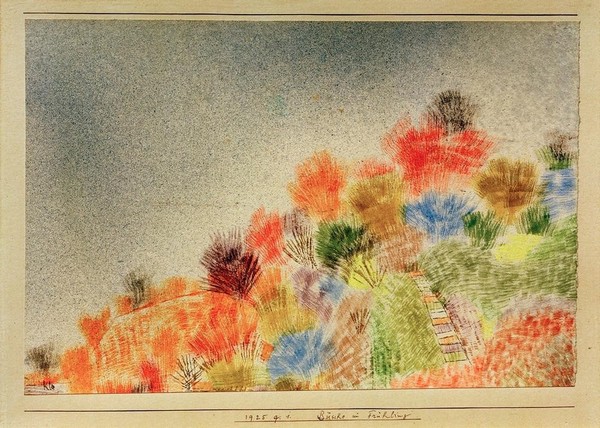
Ludwig Rellstab was born in Berlin in 1799 to an influential, wealthy and musical family: his father was a pianist and publisher and his mother a singer. Ludwig received what is often called a solid education; he even played piano in several concerts, but eventually, his career turned to arts; he wrote theatre and poetry and was celebrated, above all, as a sharp tongue literary and musical critic with strong opinions.
Rellstab tells in his memoirs that in 1825 he travelled to Vienna to visit Beethoven. In addition to showing his admiration, he wanted to convince him to set into music on one of his librettos, and left him a few poems hoping that they would inspire him some songs. As we know, he didn't achieve neither one thing nor the other. He explains, however, that the manuscripts had been returned to him a few years later; some of them were marked with pencil, those that Beethoven had liked most. Too ill to compose himself, he had given them to Schubert for him to musicalize them. Anton Schindler, Beethoven's secretary, explained a slightly different version: he had found Rellstab's poems when arranging the composer's documents after his death, and had given them to Schubert.
The story, with its variations, could be essentially true (more plausible in Schindler's version), but it could also be false: they wrote their memories more than thirty years after the events, by that time Schubert was widely recognized and both Rellstab and Schindler were prone to adorn their stories. Schubert composed his ten lieder after Rellstab's poems during the spring and summer of 1828; he may have received Beethoven's manuscripts, or he may have read the poems published in 1827.
In any case, Schubert devoted himself intensely and composed remarkable, generally expansive, lyrical and beautifully strophic lieder. In his manuscripts, three of them are isolated, but seven more are written in a row, one after the other. They are the seven that editor Tobias Hasliger published as part of Schwanengesang. We're listening to the third, Frühlingssehnsucht, performed by Matthias Goerne and Alfred Brendel.
We will also listen to it in Vilabertran, in this case performed by Goerne and pianist Seong-Jin Cho; this is one of the concerts we are going over this week. The other one is that of Manuel Walser and Akemi Murakami; the baritone sings Winterreise again at the Canonica after he did so on his debut seven years ago, in a brave last-minute replacement that made his name be remembered.
So far, before Frühlingssehnsucht we have heard seven lieder from Schwanengesang and ten from Winterreise; you will find them linked after the text and the translation, in case you want to review them before the concert. We will also have Die schöne Müllerin in Vilabertran, but we will talk about it another day.
Säuselnde Lüfte
Wehend so mild,
Blumiger Düfte
Atmend erfüllt!
Wie haucht ihr mich wonnig begrüßend an!
Wie habt ihr dem pochenden Herzen getan?
Es möchte Euch folgen auf luftiger Bahn!
Wohin?
Bächlein, so munter
Rauschend zumal,
Wollen hinunter
Silbern ins Tal.
Die schwebende Welle, dort eilt sie dahin!
Tief spiegeln sich Fluren und Himmel darin.
Was ziehst Du mich, sehnend verlangender Sinn,
Hinab?
Grüßender Sonne
Spielendes Gold,
Hoffende Wonne
Bringest Du hold.
Wie labt mich Dein selig begrüßendes Bild!
Es lächelt am tiefblauen Himmel so mild
Und hat mir das Auge mit Tränen gefüllt!
Warum?
Grünend umkränzet
Wälder und Höh’!
Schimmernd erglänzet
Blütenschnee!
So dränget sich Alles zum bräutlichen Licht;
Es schwellen die Keime, die Knospe bricht;
Sie haben gefunden was ihnen gebricht:
Und Du?
Rastloses Sehnen!
Wünschendes Herz,
Immer nur Tränen,
Klage und Schmerz?
Auch ich bin mir schwellender Triebe bewußt!
Wer stillet mir endlich die drängende Lust?
Nur Du befreist den Lenz in der Brust,
Nur Du!
Please follow this link if you need an English translation.
Thursday 18 August: Winterreise, amb Manuel Walser i Akemi Murakami
- n. 1 Gute Nacht
- n. 2 Die Wetterfahne
- n. 4 Erstarrung
- n. 5 Der Lindenbaum
- n. 7 Auf dem Flusse
- n. 10 Rast
- n. 15 Die Krähe
- n. 19 Täuschung
- n. 23 Die Nebensonnen
- n. 24 Der Leiermann
Friday 19 August: Schwanengesang, amb Matthias Goerne i Seong-Jin Cho















Comments powered by CComment